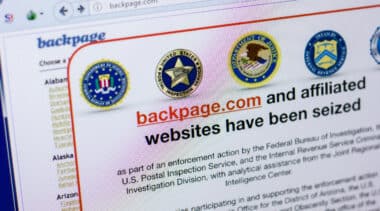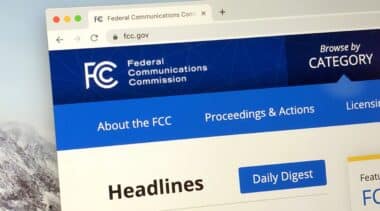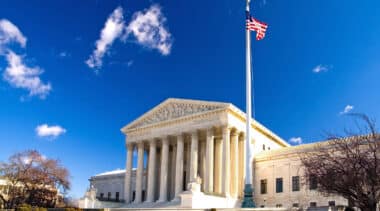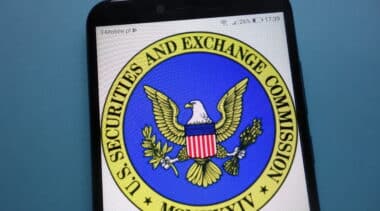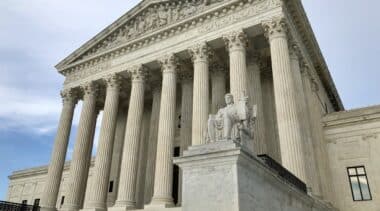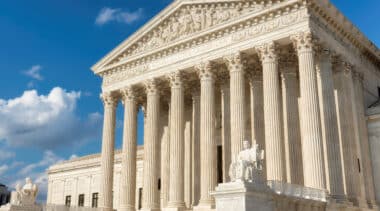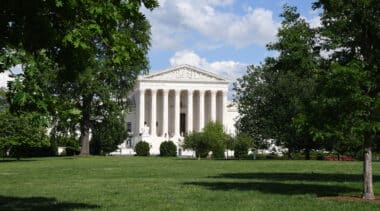-
Day v. Henry: Legal protections for interstate shipment of alcohol
In-state physical presence for alcohol retailers is demonstrably non-essential to the functioning of the alcohol regulatory system.
-
United States v. Lacey et al: Digital free speech is at risk
The district court’s deeply flawed handling of this case presents profound threats for speech and the Internet.
-
Marfil v. City of New Braunfels: Regulating short-term rentals
Short-term rentals in New Braunfels are prevalent, and the city has issued no nuisance citations against these properties.
-
Federal Communications Commission v. Consumers’ Research
The idea that delegations of power to private parties are judged by a stricter standard than delegations to public parties has no support in any holdings of this Court.
-
Horseracing Integrity and Safety Authority v. National Horsemen’s Benevolent and Protective Association
The Horseracing Integrity and Safety Authority is an unaccountable agency that exercises significant federal rulemaking, investigation, and enforcement authority.
-
Anderson v. TikTok, Inc.: Section 230 protections apply to social media
Removing Section 230 protections from social media would ultimately harm internet users as online platforms would decrease useful content curation and increase censorship.
-
Free Speech Coalition, Inc. v. Paxton: Texas law burdens adult access to protected online speech
The First Amendment doesn’t permit shortcuts. Texas must prove its statute satisfies strict scrutiny.
-
Firebaugh v. Garland: Banning TikTok is unconstitutional
Shuttering TikTok will deny millions of Americans access to a unique and important platform for exercising their right to free speech.
-
Powell v. SEC: SEC-imposed gag order is unconstitutional
"SEC’s denial of the rulemaking petition perpetuates SEC’s 50-year unconstitutional reign of error."
-
Alario v. Knudsen: Montana’s TikTok ban is unconstitutional
Montana Senate Bill 419 is an unconstitutional ban on free expression that triggers the most exacting scrutiny under the First Amendment.
-
Eidson v. South Carolina: School choice program is designed to provide new opportunities to all eligible families
School choice— like South Carolina’s ESTF program—is a tool to provide children equal access to education while recognizing that all children learn in unique ways.
-
Hopkins v. Watson: Mississippi’s lifetime disenfranchisement scheme should be invalidated
Mississippi’s mandatory, irrevocable, lifetime disenfranchisement scheme, rooted in noxious racism, and unique in its arbitrariness and severity, is cruel and unusual.
-
Moody v. NetChoice, Paxton v. NetChoice: Florida and Texas statutes violate the First Amendment
The laws regulating social media platforms in these cases interfere with protected editorial discretion and compel dissemination of unwanted third-party speech in violation of the First Amendment.
-
Amicus Brief: Quinn v. Washington
The constitution imposes territorial limits on state taxes to ensure a dynamic and competitive interstate economy.
-
National Horsemen’s Benevolent and Protective Association v. Black
The structure of the Authority violates the separation of powers because the members of the Authority, although Officers, are not appointed with presidential nomination and Senate confirmation, as the Appointments Clause requires.
-
Brooke Henderson, et al. v. School District of Springfield R-12, et al.
To avoid hollowing out both section 1983 and section 1988, this court should reverse the district court’s order.
-
Amicus Brief: Roberts v. McDonald
The Supreme Court should take the case because "race-based distribution of antiviral treatments is plainly unconstitutional."
-
Amicus Brief: Memmer v. United States
The government’s argument would put landowners in a Trails Act-limbo where the government has denied them use and possession of their land but the owners are not entitled to compensation unless and until the railroad and trail-sponsor reach a trail-use agreement.

